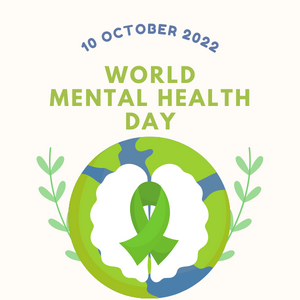Mental health affects everyone. Everyone has mental health, and everyone has a role to play
in making sure that everyone else can also have it. Mental health is more than the presence
or absence of illness. Mental health applies to every area of our everyday challenges, i.e.,
losing a job, starting a job, getting married or losing a loved one. Mental health should not
be a service accessible by a few. The ability to do so should be within reach for all of us –
regardless of age, gender, nationality, religion, or any other defining characteristic. As such,
we all have a responsibility to work together in order to create change and tackle this
important issue.
